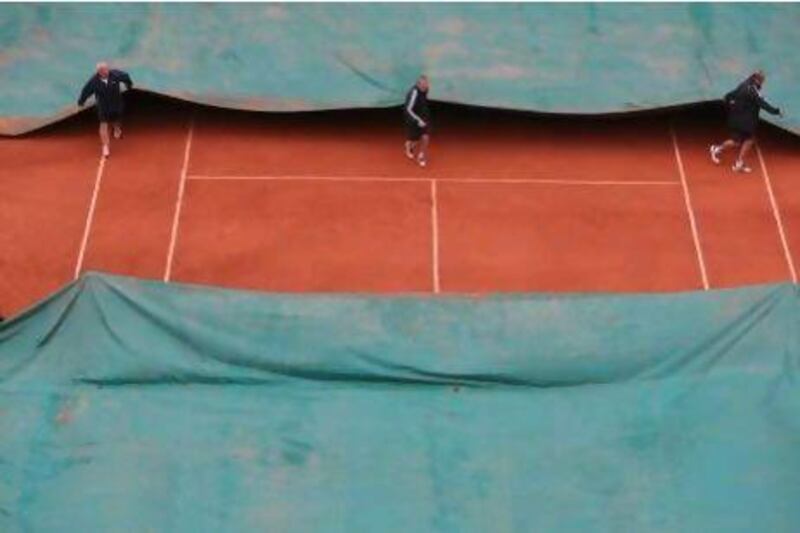Roland Garros is always a leading actor in the drama that is the French Open. Some would like to see that role reduced, and it may be, but not before 2017.
Players understand the challenges of playing on clay, and while several of them would not mind if the surface disappeared from the game, or at least from the majors, none expect it to.
It is the peripherals of the Roland Garros experience that are coming in for criticism.
The French Open is the only major without lights on any court and, with the US Open, it also does not have a retractable roof over its main stadium.
Several matches in this year's French Open, including the final between Rafael Nadal and Novak Djokovic, appeared to be impacted by circumstances unique to Roland Garros. The match swung this way and that due to conditions that would not be factors at the other slam events.
Nadal had the final under control, on Sunday, until rain pelted the court. With the clay turning to mud and the ball heavy with water, Djokovic surged. He won eight consecutive games, which in retrospect is remarkable, given Nadal's dominance at every other moment in the tournament.
But with the Serb ascendant, the match was halted because of darkness, not rain. Nadal was, perhaps, saved by Roland Garros.
When he returned to Court Philippe Chatrier yesterday, trailing 2-1 in the fourth set, Nadal immediately broke Djokovic's serve and won the decisive set 7-5.
Earlier, Tomas Berdych and Stanilaus Wawrinka each complained about darkness-driven halts. Each lost in the fourth round when play was resumed the next day.
"As you see, every place you have at least lights," Berdych said. "OK, we don't have to play like a night session, but at least to have decent lights so that you can finish the match."
Wawrinka was in the fifth set with Jo-Wilfried Tsonga, who has a reputation for fading in long matches, when play was halted by darkness. A refreshed Tsonga won the next day. "I still don't understand why they don't have lights here, because every year it's the same problem, actually," Wawrinka said.
Anyone who has visited Roland Garros knows that it is cosy and venerable. The main courts look as if they might have been built by the Greeks.
To be fair, organisers are handcuffed by local laws banning night matches, and struggle against preservationists who oppose expansion of the plant because it would come at the expense of the surrounding Bois de Bologne.
Improvements, including a retractable roof over the main court, are expected by 2017. The French Open might then become a little less about Roland Garros.
[ poberjuerge@thenational.ae ]
Follow us
[ @SprtNationalUAE ]





